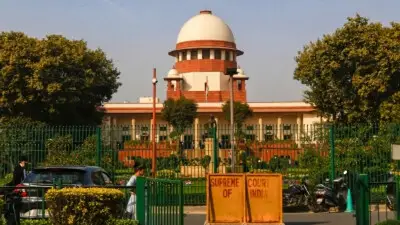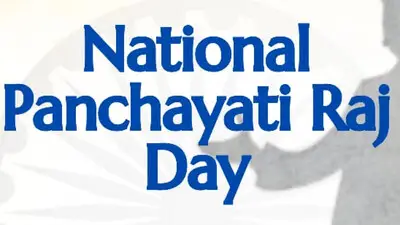Recommended Stories
New Delhi: Literature can contribute a major role in bridging the differences between countries, according to the daughters of iconic Urdu writer Saadat Hasan Manto who are visiting his birthplace in India to celebrate his birth centenary.
"Literary and cultural programmes can lessen the distance between people of the two countries," says Nighat Patel, the eldest of Manto's three daughters who is here to participate in a seminar on Manto's work told PTI.
While India celebrates the anniversaries of Faiz Ahmed Faiz and Manto, across the border in Pakistan they are preparing to release two films starring actor Naseeruddin Shah and conduct a lot of related activities, she says.
Nighat along with siblings Nuzhat Arshad and Nusrat Jalal crossed over from Pakistan via the Wagah-Attari border on Tuesday and visited their father's birthplace in Papraudi village of Punjab.
Born in Mumbai, the 66-year-old Nighat, who was nine when Manto died says she remembers very little of him. "I was very young when father passed away and whatever I know about Manto, I have learnt from what other people have said about him."
Manto is best known for his short stories, especially those that explored the impact of the partition of the subcontinent into India and Pakistan in 1947. He ended a career as a scriptwriter in Mumbai to move to Pakistan with his family in early 1948. He died at the age of 42 in 1955.
"Manto's stories have more of Indian characters because he spent lot more time in India than in Pakistan. Writers are cultural ambassadors of any country and literature cannot be confined within boundaries," says Khwaja Mohd. Ekramuddin,Director National Council for Promotion of Urdu Language, which is holding a three-day programme on Manto here.
Sadaat Manto who authored compelling short stories such as "Bu" (Odour), "Khol Do" (Open It), "Thanda Gosht" (Cold Meat) as well as who penned the magnum opus, "Toba Tek Singh", was tried for obscenity many times but never convicted. He wrote on topics that was considered taboo in his times.
Manto's middle daughter, who was seven years old at the time of his death says his demise has been a "great tragedy."
"I have three boys and when my second son was engaged to be married I got to know from his fiancee that he expressed a
desire to write and I was thrilled. At least somebody in the family will carry forward Manto's legacy. Let us see if he is inspired enough," says Nuzhat Arshad.
While his daughters and their children may not have inherited Manto's literary legacy, all of them are "very proud of his contribution to literature."
"I don't write but I am a spendthrift. Just like my father I spend a lot!," says Nighat who calls herself a "simple housewife" and who lives in the same house in Lahore where the Manto lived after the Partition.
Manto's youngest daughter, Nusrat Jalal, who was a mere toddler when her father died says he was not recognised for his works while he was alive.
"He was a great writer the world knows this now but his work was acknowledged late. When he was alive he was not given recognition. It is now during his centenary year that he is being feted on such a big scale."












